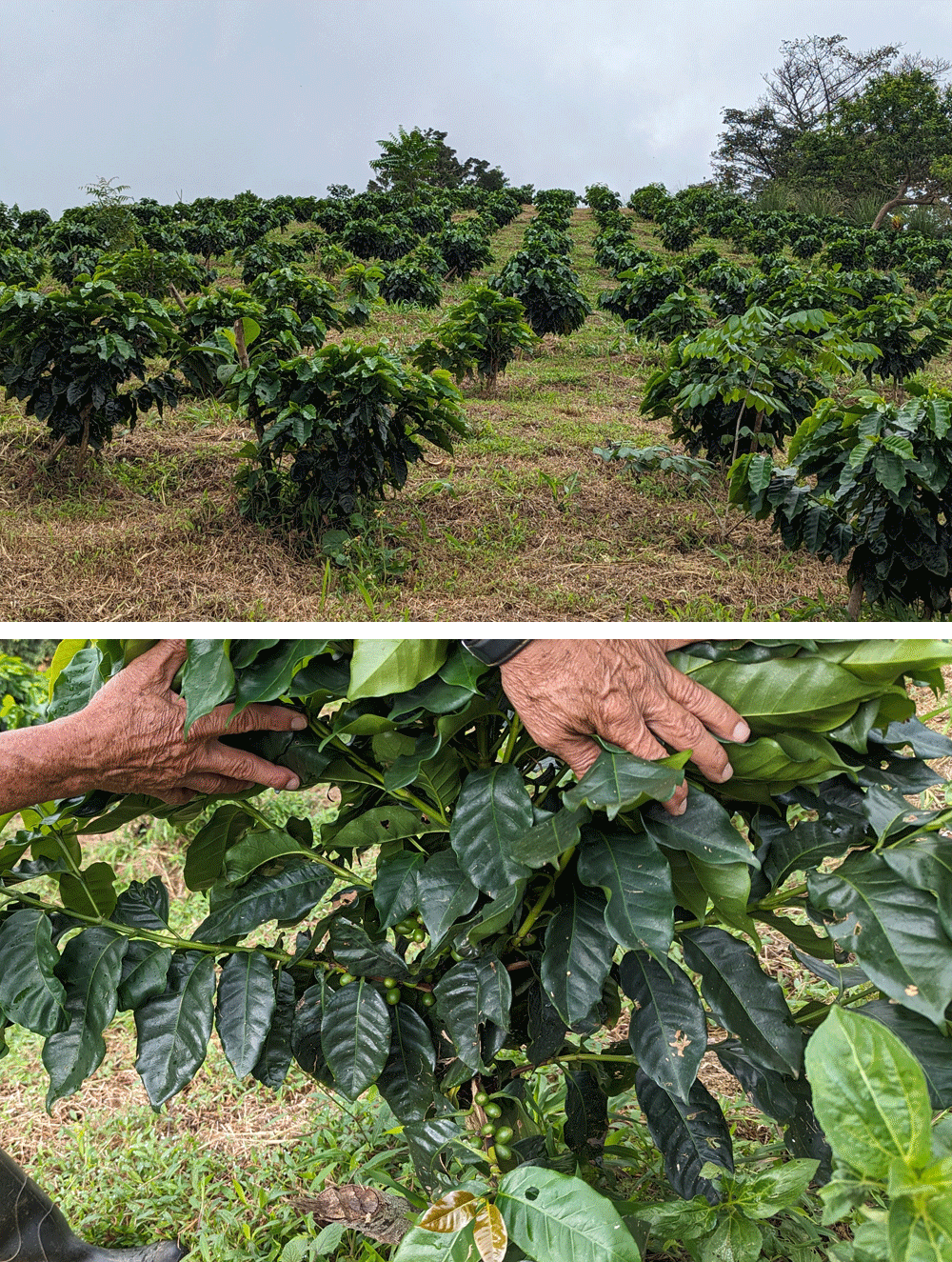Located in the picturesque region of Gatu, Panama, is a sprawling coffee farm that spans an impressive 233 acres. This coffee farm stands out for its commitment to sustainable farming practices, selective deforestation, robust infrastructure, and the uplifting of surrounding communities. Let’s explore the features and initiatives that make this coffee farm a shining example of responsible agricultural practices.

- Sustainable Farming Practices: At the heart of this coffee farm is a deep-rooted dedication to sustainable farming. The farm employs organic cultivation methods, minimizing the use of synthetic pesticides and fertilizers to protect the environment and maintain soil health. By embracing sustainable practices, the farm ensures the long-term viability of coffee production while preserving the natural ecosystem.
- Selective Deforestation: Recognizing the importance of maintaining a balanced ecosystem, the coffee farm employs selective deforestation techniques. This approach involves careful removal of specific trees and vegetation to create optimal growing conditions for coffee plants while preserving the integrity of the surrounding forest. The farm maintains a harmonious balance between the coffee plantation and the natural habitat, allowing wildlife to thrive and preserving biodiversity.
- Infrastructure Development: The coffee farm in Gatu boasts robust infrastructure to support its operations efficiently. Well-constructed roads traverse the vast estate, facilitating smooth transportation of coffee cherries during the harvest season. The farm’s infrastructure also includes irrigation systems, ensuring optimal water management for the coffee plants throughout the year. These infrastructure developments enhance productivity, accessibility, and sustainability in all aspects of the farm’s operations.
- Supporting Surrounding Communities: This coffee farm recognizes the importance of fostering strong relationships with the communities in its vicinity. It actively engages in initiatives that uplift and support the local population. The farm provides employment opportunities for community members, empowering them with stable incomes and job security. By prioritizing fair labor practices, the farm contributes to the economic well-being and social development of the surrounding communities.
- Road Construction and Connectivity: Understanding the significance of connectivity for both farm operations and the local community, the coffee farm takes an active role in road construction. It invests in the development of well-maintained roads, facilitating efficient transportation of both coffee beans and goods to and from the farm. These improved transportation routes also benefit the community, allowing for easier access to essential services and creating opportunities for local businesses.
- Active Nurseries and Plant Diversity: The coffee farm is home to thriving nurseries, where seedlings are carefully nurtured before being transplanted into the plantation. These active nurseries ensure a continuous supply of healthy and genetically diverse coffee plants. Additionally, the farm embraces plant diversity by integrating other crops such as banana plants within the coffee plantation. This practice enhances ecological balance, provides shade for the coffee plants, and diversifies the farm’s agricultural output.
- Beautification and Environmental Stewardship: Recognizing the visual appeal and environmental benefits of a well-maintained landscape, the coffee farm focuses on beautification efforts. The farm prioritizes the preservation of natural features, such as water bodies and trees, while implementing landscaping and gardening practices to enhance the aesthetic appeal of the farm. By promoting environmental stewardship, the farm showcases its commitment to creating a harmonious blend of agriculture and natural beauty.
Our coffee farm in Gatu, Panama, with its vast expanse, sustainable farming practices, selective deforestation, robust infrastructure, and community-focused initiatives, exemplifies responsible and ethical coffee production. By embracing organic cultivation, selective deforestation, and supporting local communities, the farm showcases its commitment to environmental preservation, economic development, and social upliftment. With its active nurseries, integration of diverse crops, and beautification efforts, the farm creates a sustainable and visually appealing landscape that harmonizes agricultural productivity with ecological balance.


